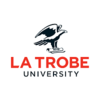La Trobe’s Bachelor of Biological Sciences gives students a strong scientific grounding plus the flexibility to specialize in an area that interests them.
The program starts with the basic foundational skills in biology, chemistry, ecology and biodiversity, and explores the impacts of infection, epidemics and pandemics. Students will start practical classes from the first year – both in on-campus labs and facilities, and out in the field.
Graduates may customize courses with a major of their choice. They may select from a range of areas, including biochemistry, botany, ecology, genetics, human physiological sciences, microbiology or zoology. This degree also gives students the option to take a double major or choose an additional minor.
Students will learn to:
- Understand the fundamentals of biology as well as the structure and function of living organisms, their life processes and diversity.
- Explore experimental design issues and statistics to analyse data from experiments. Learn to effectively present information and data to different audiences.
- Understand atomic and molecular structures, chemical reactions and organic and physical chemistry and apply these principles to further study and employment.
- Discover how infections can threaten human wellbeing and the strategies available to prevent and cure disease.
- Learn about ethical conduct when working as a scientific professional and how to promote and communicate your professional identity to potential employers and peers.
La Trobe graduates have found work in lab and field-based settings, including private industry, research institutes, and local and state government organizations. Possible roles include:
- Biological scientist: Examine plants, animals and microbes to better understand their natural biological processes and impact on the environment.
- Microbiologist: Investigate the growth, structure development and other characteristics of microscopic organisms such as bacteria, algae and fungi. Undertake laboratory analysis and monitor microbial cultures, samples and new drugs.
- Environmental consultant: Provide expert assessment and advisory services to clients on matters related to the management of environmental issues.
- Biosecurity officer: Develop and deliver robust legislation, policies, systems and processes to support our biosecurity system.
- Geneticist: Research and study the inheritance of traits at the molecular, organism or population level.






